Get Guidance on What Causes a False Positive Breathalyzer Test
You might have heard cases concerning people having false positive results on a breath test. These folks swear on their lives that they have not participated in any alcohol consumption, let alone sufficiently excessive alcohol consumption to cause failed breathalyzer tests.
That leaves us with more questions. What could cause such inaccurate results? What foods can cause a false positive for alcohol consumption? Are any household items or cleaning supplies to blame?
Alcohol abuse and driving while intoxicated is a serious problem here in Tucson, Arizona, and around the entire Grand Canyon State. Catalina Behavioral Health has helped countless individuals recover from addictions to drug use and alcohol abuse. We know that infrequent false positives do happen.
Plus, we understand the serious consequences drunk driving charges can have on someone’s life. People in this position have few options to restore a driver’s license other than hiring an expensive, experienced DUI attorney.
Keep reading to get answers to the question: What foods can cause a false positive for alcohol?
Get Effective Alcohol Detox and Rehab Options
Food-Related False Positives on Breathalyzer Tests
From fermented foods to baking ingredients, some foods are naturally alcohol-containing products that occasionally cause a false positive.
You might notice on our list how many of these troubling foods contain high percentages of sugar. That means it’s worth a shout-out to spicy foods, which are less likely to contain ingredients that will cause false positives. Bring on that hot sauce!
Here are a few foods to be aware of:
Fermented Foods May Appear as Consumed Alcohol
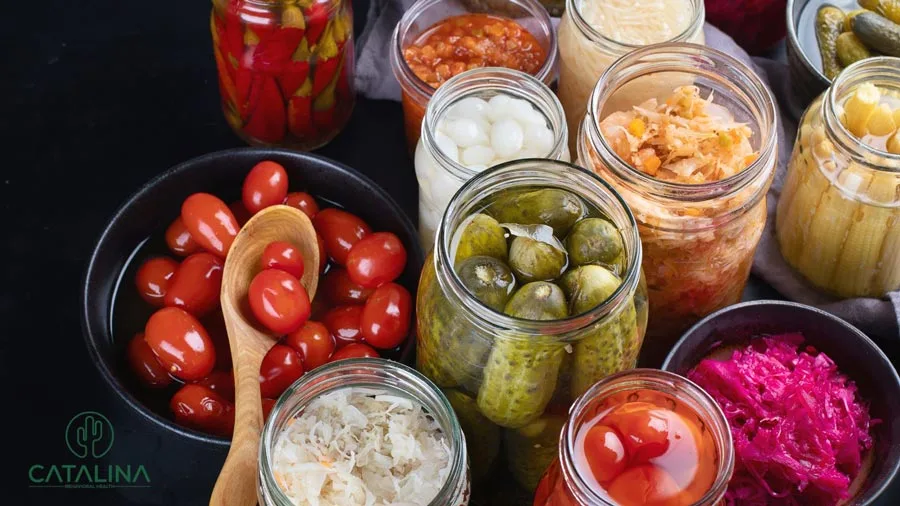
Sauerkraut, yogurts, pickles, kombucha, and kimchi might be great for a healthy gut, but they can also cause false positive breathalyzer results. These fermented foods contain a small amount of alcohol because of the chemical reaction that occurs during fermentation.
Overripe Fruits and Fruit Drinks
When fruits overripen, they create methane gas. This process produces trace amounts of alcohol that may result in inaccurate breathalyzer test results. Food manufacturers often use unattractive or bruised fruits in their drinks – they’ve often sat around a warehouse a little longer. That makes them ripe for error.
Energy Drinks or Diet Beverages
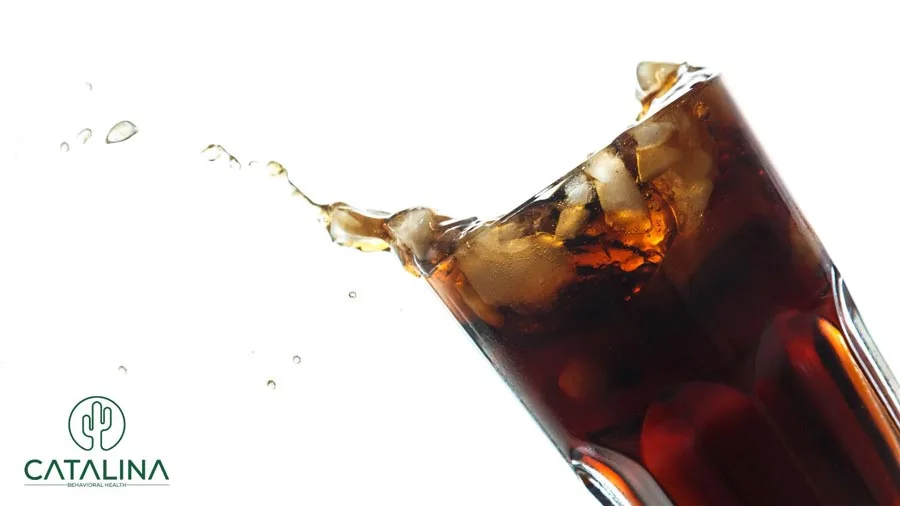
Energy drinks diet beverages often have a lot of sugar, which can mix with other food and cause fermentation during the digestive process. This can lead to the same issues you might have with fermented items.
The artificial sweeteners in diet beverages might also cause a false positive result. Like sugar, these sweeteners can cause fermentation and a positive reading. The next time you pick one up, look for the ingredients sorbitol, mannitol, xylitol, sucralose, or aspartame on those diet beverages.
Hint: You can have these same sugar alcohol reactions occur while digesting protein bars.
Bread, Pastry, Pizza Dough (Yeast!)
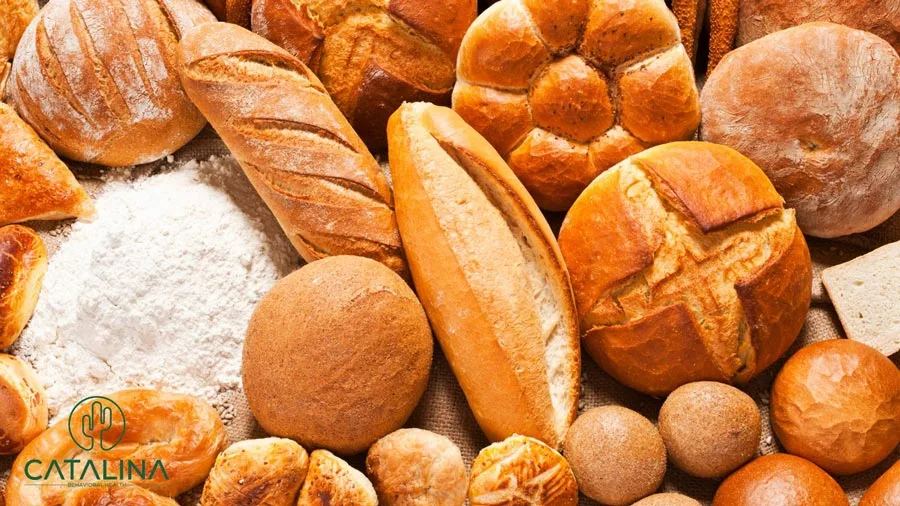
The yeast used in baking can also cause you to catch a DUI charge. Yeast is necessary to make the bread rise. It converts the sugars in the dough into alcohol and carbon dioxide during the process. While most of the alcohol will evaporate as the bread bakes, trace amounts might still exist.
Here’s another culprit. Vanilla extract is made by soaking vanilla beans in water and ethanol. By U.S. law, food manufacturers can only label it “pure vanilla extract” if the product contains a minimum of 35% ethanol by volume. Alcohol is listed as an ingredient on the box at your local supermarket.
Certain Foods on Low-carb Diets
People on low-carbohydrate diets make the body enter a state of ketosis. That means the body burns fat for energy instead of utilizing carbs. The process can create acetone and other ketones that can convert into a type of alcohol that the breathalyzer test may mistakenly determine to be alcohol.
Household Products That Can Lead to a False Reading
Besides foods, certain household items and medications the average person has around the home can lead to a false positive on a breathalyzer test, though they are unlikely to do so on an EtG test. Here are a few likely products to be aware of:
Mouthwash and Many Breath Freshener Sprays
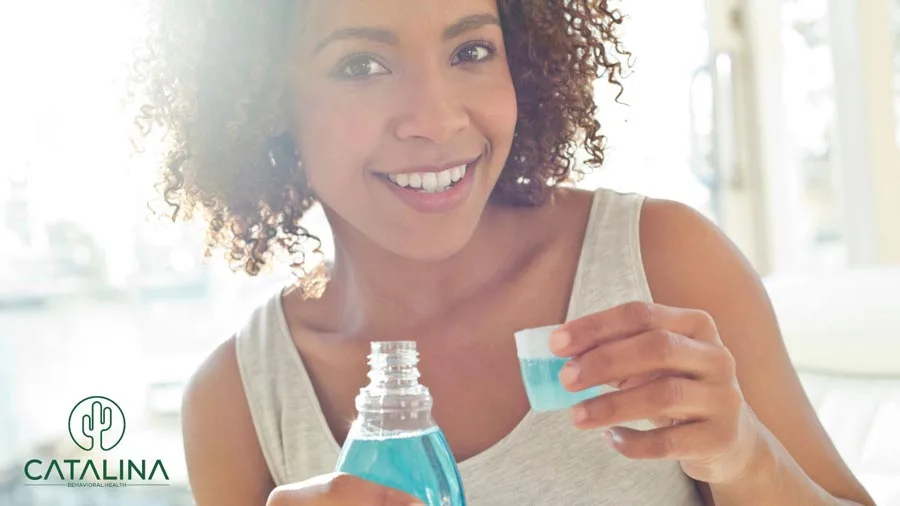
Mouthwash and breath spray products contain ethanol or ethyl alcohol. After using them, they can linger in the soft tissues inside the mouth, only to be picked up as a false positive on a breathalyzer test. There may be enough alcohol in some products to also be picked up in a blood or urine test if you swallow it instead of spit it out of your mouth after freshening up your breath.
Aerosol Sprays, Cologne, and Spray-on Deodorants
Some aerosol products list alcohol on the label’s ingredient list. Misting it in your car (say to cover up an odor) and then inhaling it could mean a false positive result.
Cough Syrup and Liquid Medications
Cough syrups and certain vitamins in liquid formats use ethanol to dissolve the active ingredients and distribute them throughout the product for effective, safe dosage. Overnight cough formulas can worsen matters because they usually contain antihistamines that cause drowsiness.
Hand Sanitizer and Rubbing Alcohol
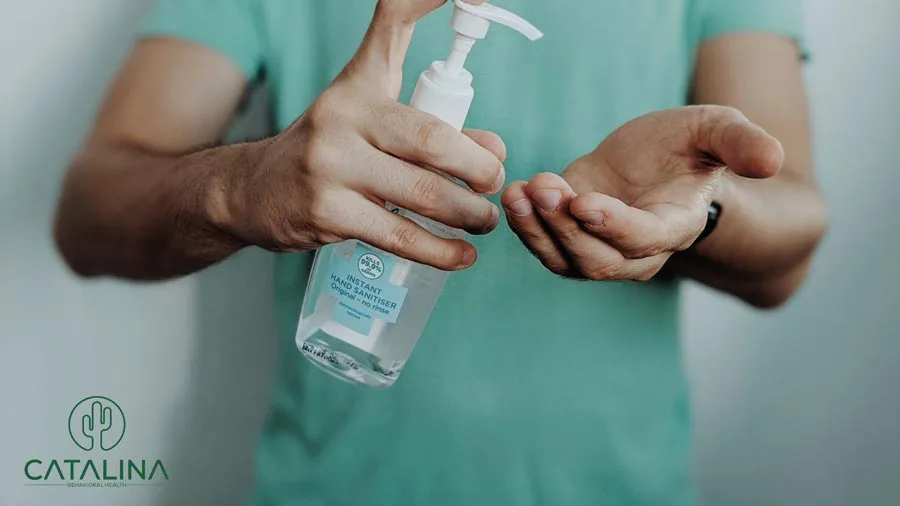
Hand sanitizers often have isopropanol, an alcohol that can be absorbed through the skin or inhaled. This accidental absorption can lead to a false positive on breathalyzer test results when a person applies it shortly before the breath test.
You might think you’re being nice to a police officer for sanitizing your hands before he approaches your vehicle during a routine traffic stop. But you’re really putting yourself at risk of jail time because that fresh application puts you at risk of a false positive test.
False Positive Results Are Unlikely with a Urine Sample or Blood Alcohol Content Test
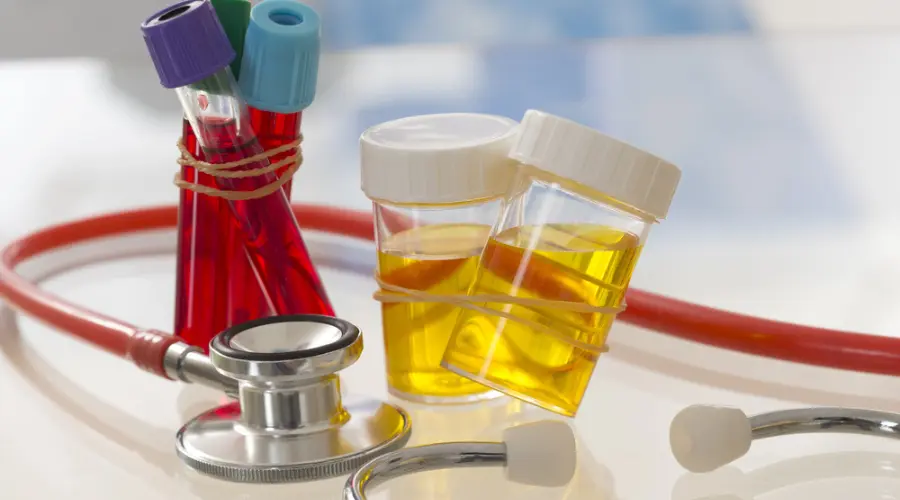
Someone is more likely to test positive on a breathalyzer test than with blood testing or urinalysis.
Blood tests are very accurate, providing a direct measurement of the ethanol present in the bloodstream. It’s unlikely to pick up on external sources such as mouthwash.
Urine tests measure the alcohol metabolites, making them more accurate than the average breathalyzer test. They are rarely impacted by food or other environmental factors.
It’s also worth considering that breath tests are done in the field, a generally uncontrolled environment. That makes breathalyzer tests more prone to influence by uncontrollable external factors. Blood alcohol content and urine testing happen in a controlled lab environment and under strict Food and Drug Administration (FDA) standards. These controls make inaccurate results unlikely.
Up To 100% of Rehab Costs Covered By Insurance
Connect with Catalina for Help to Quit Drinking
False positives on breathalyzers are usually a blip; although they can be real, they’re relatively uncommon. Excessive alcohol consumption usually is the real cause of a positive reading.
Catalina Behavioral Health is here to help anyone struggling with uncontrolled alcohol use. Alcohol Use Disorder, or alcoholism, is a treatable illness. We follow evidence-based strategies to help our clients heal the root causes of alcoholism so they can have long-lasting sobriety.
There is hope, and you can end the struggle with alcohol use today when you seek treatment with us. Give us a call today, we are here to help.







